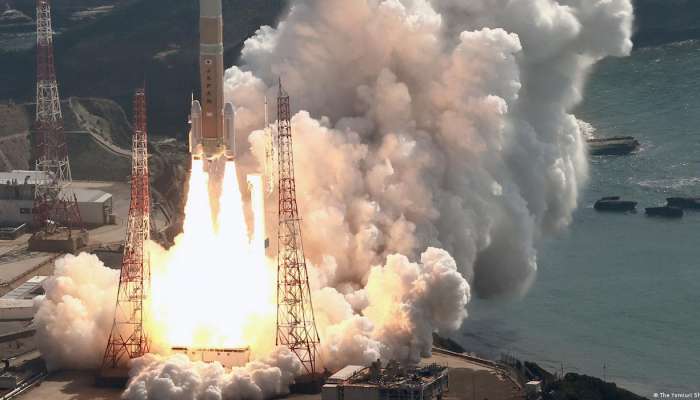
Tokyo: Japan's attempt to launch its next-generation H3 rocket failed Tuesday after the launcher's engine did not ignite in space.
The country's space agency, JAXA, aimed to compete in a market dominated by Elon Musk's SpaceX's Falcon 9 rocket.
The H3 rocket's launch was delayed by several years. Last month, an attempt for the launcher's liftoff failed when its boosters did not ignite.
The second attempt launch from the Tanegashima Space Centre on Tuesday seemed to be a success when the rocket lifted off at 10:37 a.m. (0137 GMT).
However, issues started to appear when the rocket was around 300 kilometers above ground.
The rocket's second-stage engine failed to ignite upon reaching space.
"The destruct command has been transmitted to H3 because there was no possibility of achieving the mission," the command center said during the live broadcast.
JAXA commentators said that the agency would investigate the reasons for the failure.
What could the H3 do?
The next-generation rocket was equipped with the ALOS3, a satellite for disaster management land observation.
Built by Mitsubishi Heavy Industries (MHI), the rocket was designed to carry supplies to the International Space Station.
It also potentially would have been able to detect North Korean ballistic missile launches with its experimental infrared sensor design.
A cost-effective rocket?
According to MHI, the H3's cost per launch is estimated to be nearly half that of its predecessor, the H-II, enabling it to compete in a global market dominated by the SpaceX Falcon 9 rocket.
A report published in September by the Center for Strategic and International Studies estimated the cost of a Falcon 9 launch to be around $2,600 per kilogram for a low Earth orbit. In contrast, the H-II costs around $10,500 for similar conditions.
Had the launch been successful, the Japanese rocket would have been ahead of the scheduled launch of the European Space Agency's latest low-cost Ariane 6 later this year.
Hirotaka Watanabe, a professor at Osaka University with expertise in space policy, said that the failed launch "will have a serious impact on Japan's future space policy, space business, and technological competitiveness."